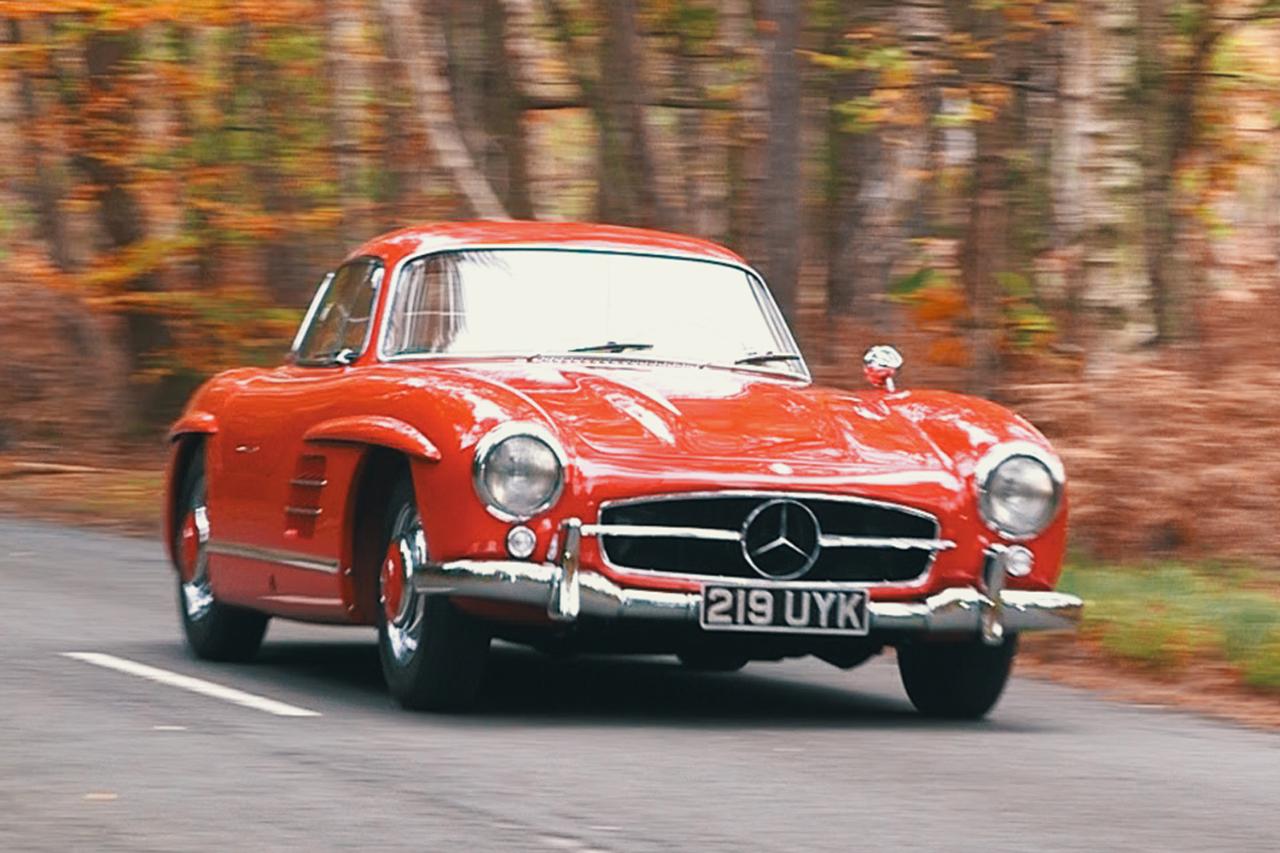Original Article – The Telegraph
This immaculate example of the most famous Mercedes is being sold at auction and is estimated to fetch a cool £925,000-£1,125,000
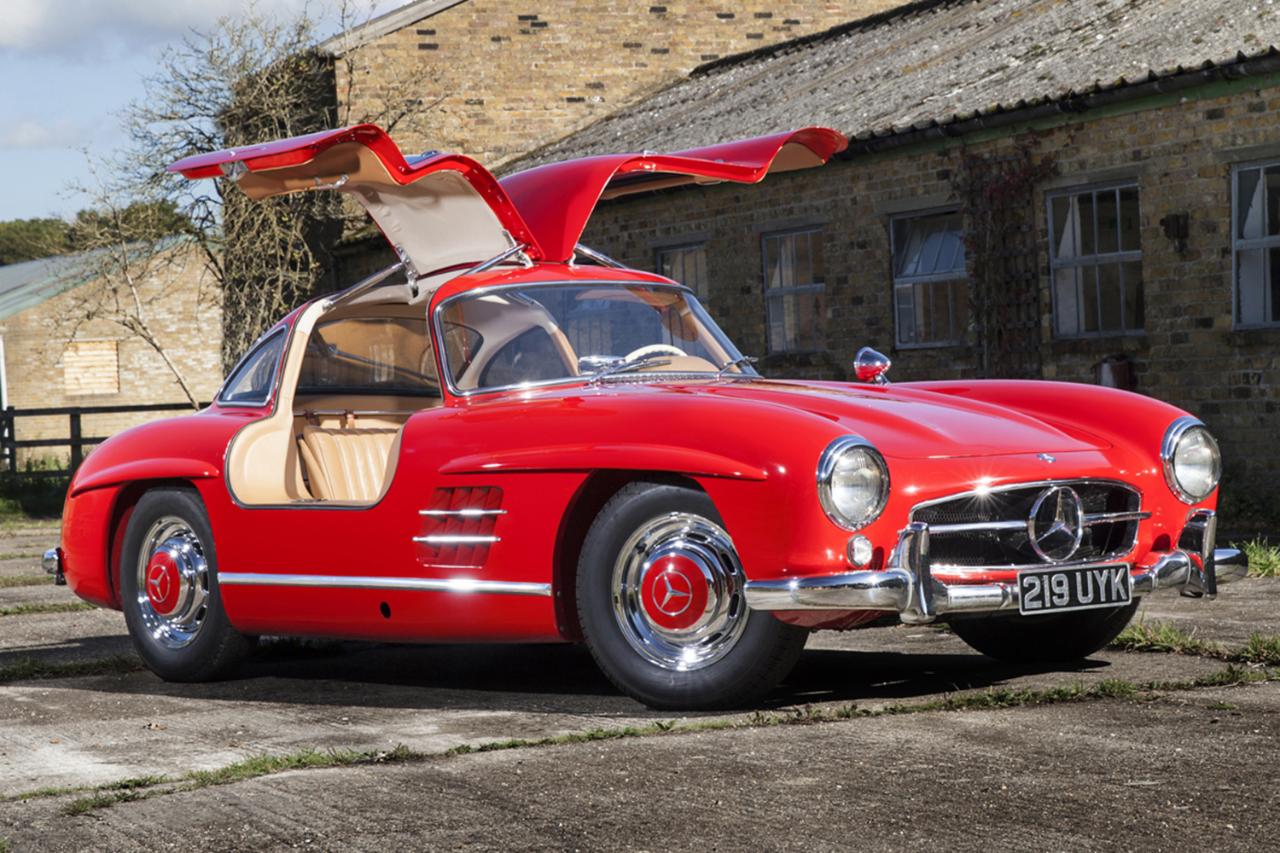
The 300 SL Gullwing is instantly recognisable by its upward-opening alloy doors – but the rest of the car is no less distinctive
There are classic cars and then there’s the Mercedes 300 SL, commonly referred to as the Gullwing because of the shape of its top-hinged alloy doors when they’re open. Together with the Jaguar E-type and Ferrari 250 GTO, it’s the most recognisable car ever.
It may come as a surprise, then, to learn that the Gullwing Coupé was only made for three years, from 1955-7, with about 1,400 produced before giving way to the more populous Roadster. The open-top car featured a number of improvements that make it better to drive but, for me, the loss of those iconic doors is a crying shame. There again, rarity never did the finest cars any harm.
The example of the SL (for Sports Leicht) featured here is a 1955 car currently owned by Graham Hedger, property entrepreneur and car collector. It’s for sale at auction with Historics at Mercedes-Benz World, Brooklands, on November 28, estimated at £925,000-£1,125,000.
The 300 SL’s body was steel, with aluminum bonnet, doors and boot lid. It could also be ordered with all-aluminium bodywork at (vast) extra cost. Only 29 of these were produced.
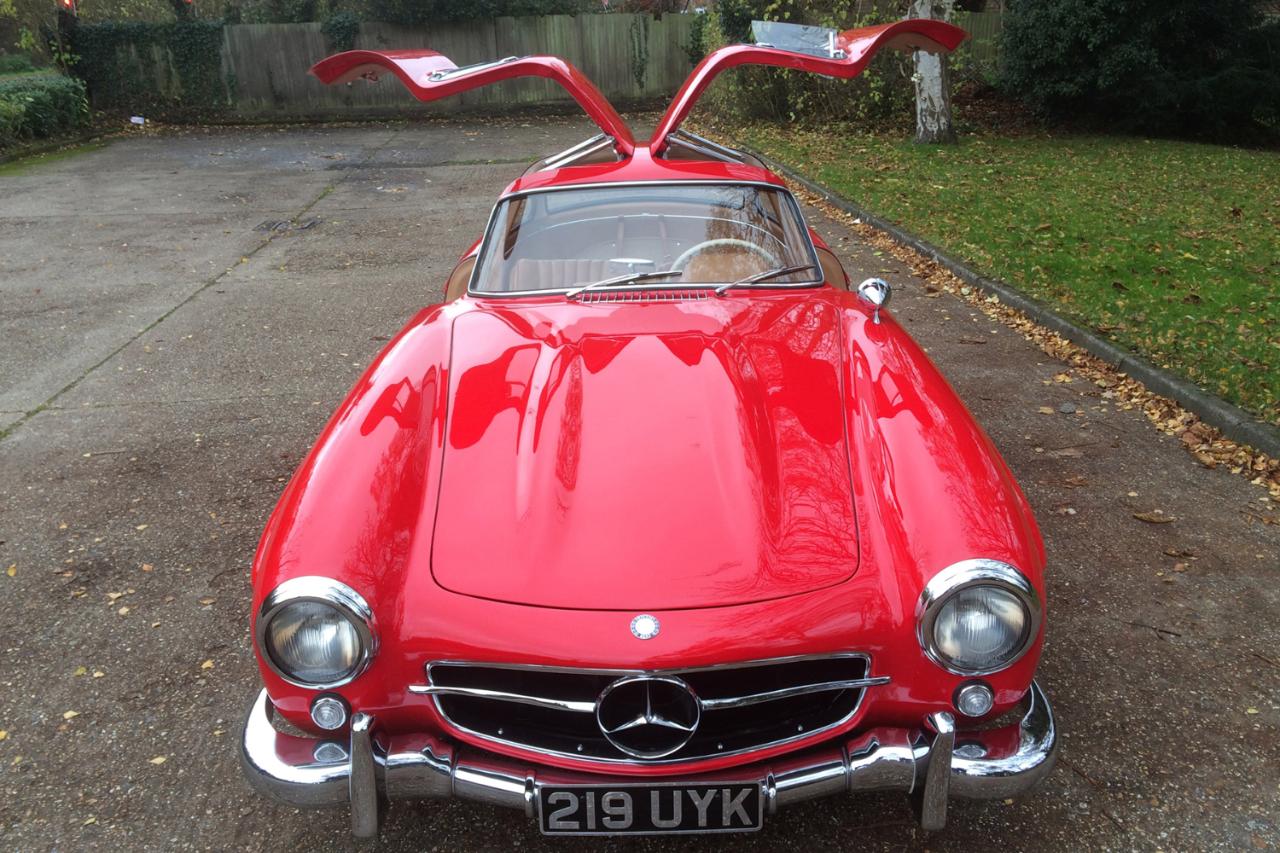
Not only did the racing-car-for-the-road pedigree and dramatic styling put the SL in a class of its own, the engine was unlike anything in other production cars, even high-performance ones. To accommodate the low bonnet line, the 3.0-litre, straight-six engine was canted at a 45 degrees to the left.
To make the engine as low as possible in the car, the production car used a dry-sump oiling system with oil pumped from a separate tank rather than being held in a sump beneath the engine. It also employed a fuel-injection system, claimed to be the first application in a production car. All of this technology was pioneered in Mercedes’ world-beating sports racers.
Watch our video of the 300 SL Gullwing in action
Keith Forrest, co-director of Templar and Wilde which performed the recommissioning work, showed us around the car. He explained that it didn’t require restoration as such, just some gentle reconditioning of the bodywork, as well as a rebuilt steering box and a new clutch. The engine was sent to Mercedes specialist Martin Cushway, who carries out work of behalf of Germany’s über Gullwing specialist HK Engineering. His firm carried out a complete rebuild and re-commissioned the fuel-injection system.
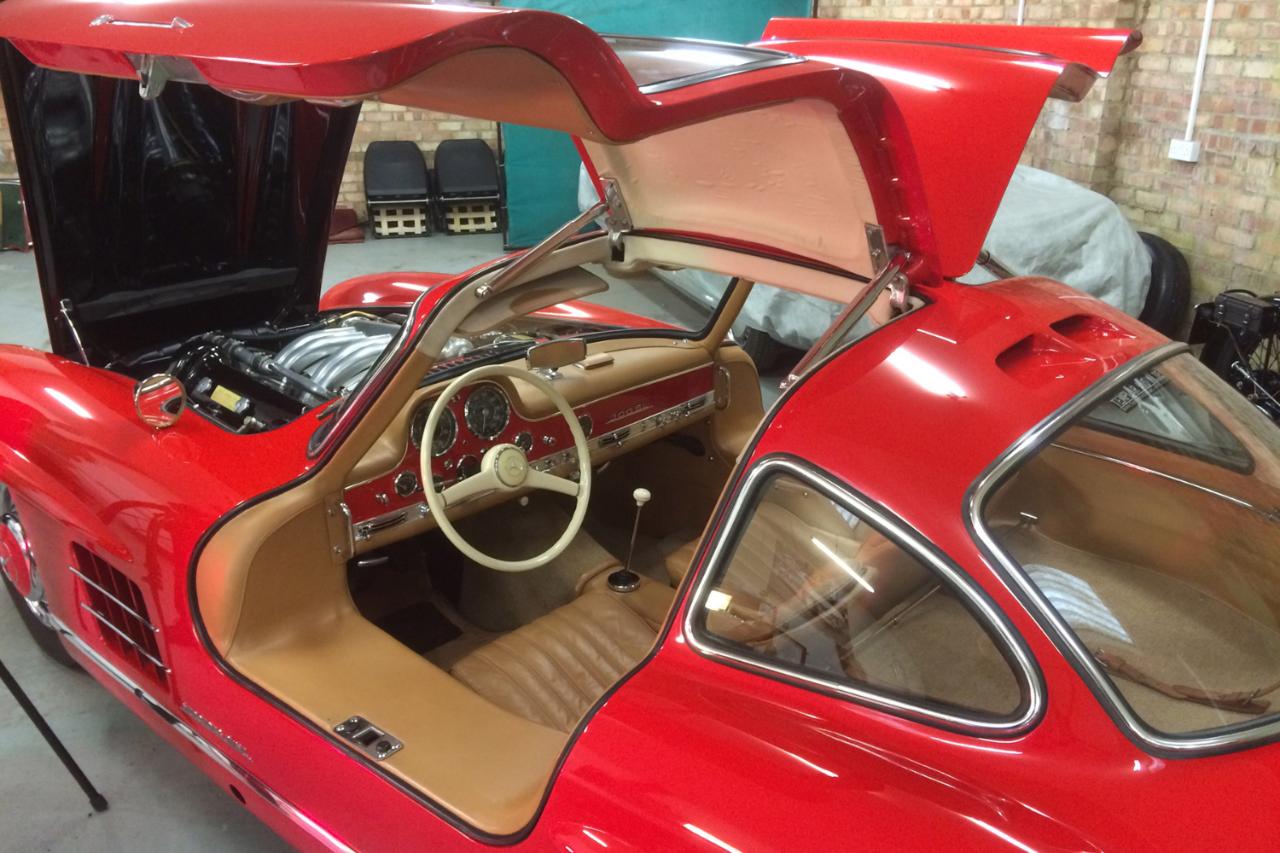
While the swooping body would be at home in any museum of modern art, it’s the detailing that makes this car so beguiling. Beautifully chromed instruments festoon the facia, and there are beautifully machined aluminium touches, while the steering wheel tilts to allow easier entry and egress.
It’s still not easy getting in, however, due to the wide sills. There’s nothing in there apart from a maze of bracing tubes of the tubular steel chassis. The wide seats are extremely comfortable and it’s easy to imagine covering vast mileages in one go.
More impressive still is the mighty straight-six. It really is a work of art, in particular the cast alloy inlet manifold atop the engine. With 215bhp, the SL had a top speed of up to 161mph, making it the fastest production car of its day.
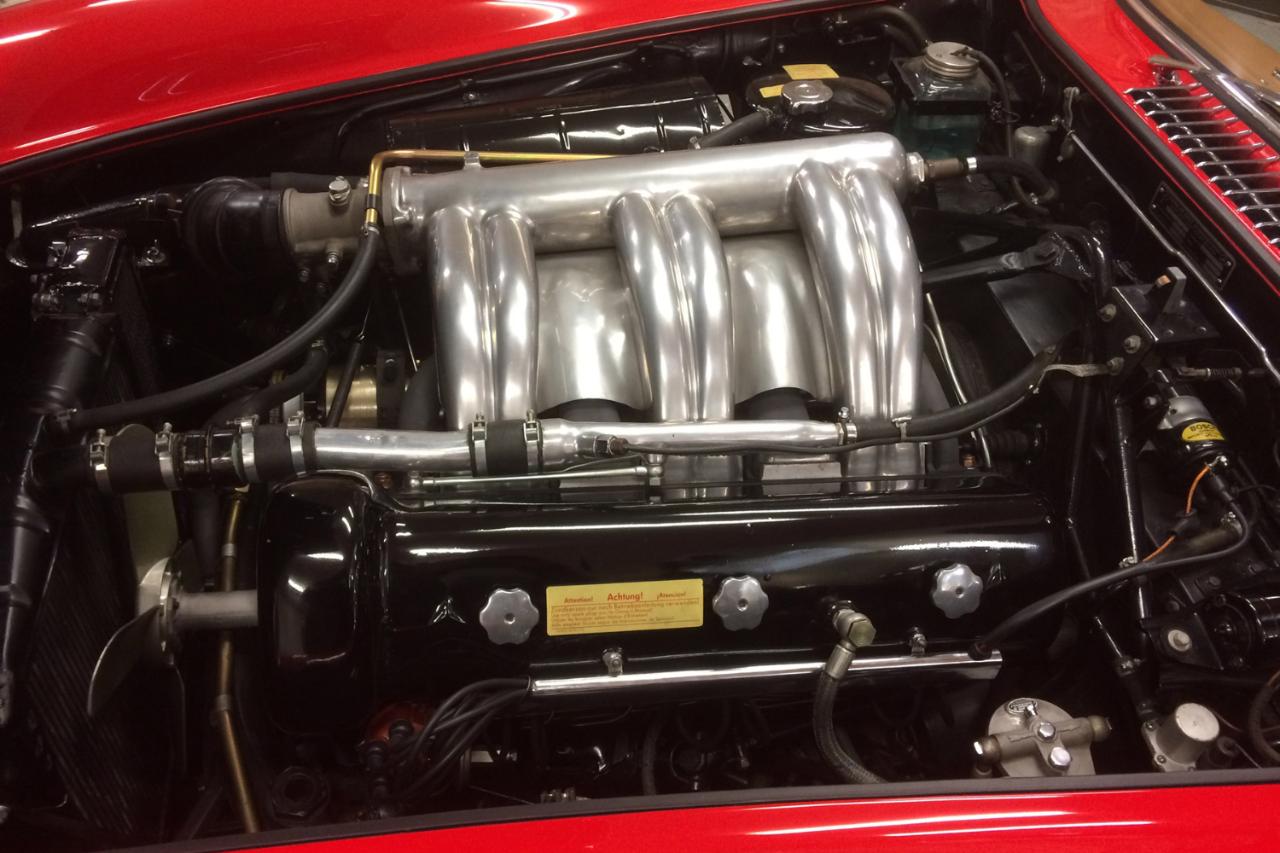
The engine is still running in after its rebuild and insurance difficulties prevented me taking it for a drive, but Forrest said that it’s the torque that makes the SL such a great car to drive.
The gearchange demands precision and the steering lacks the solidity of a modern system, but like most cars of its day the SL was steered mainly by judicious use of the accelerator.
Completed at the Mercedes-Benz factory at Sindelfigen in March of 1955, this Gullwing was silver with a red leather interior but was changed in the Nineties to its current DB534Feuerwehrrot (fire engine red) with the interior in tan leather.
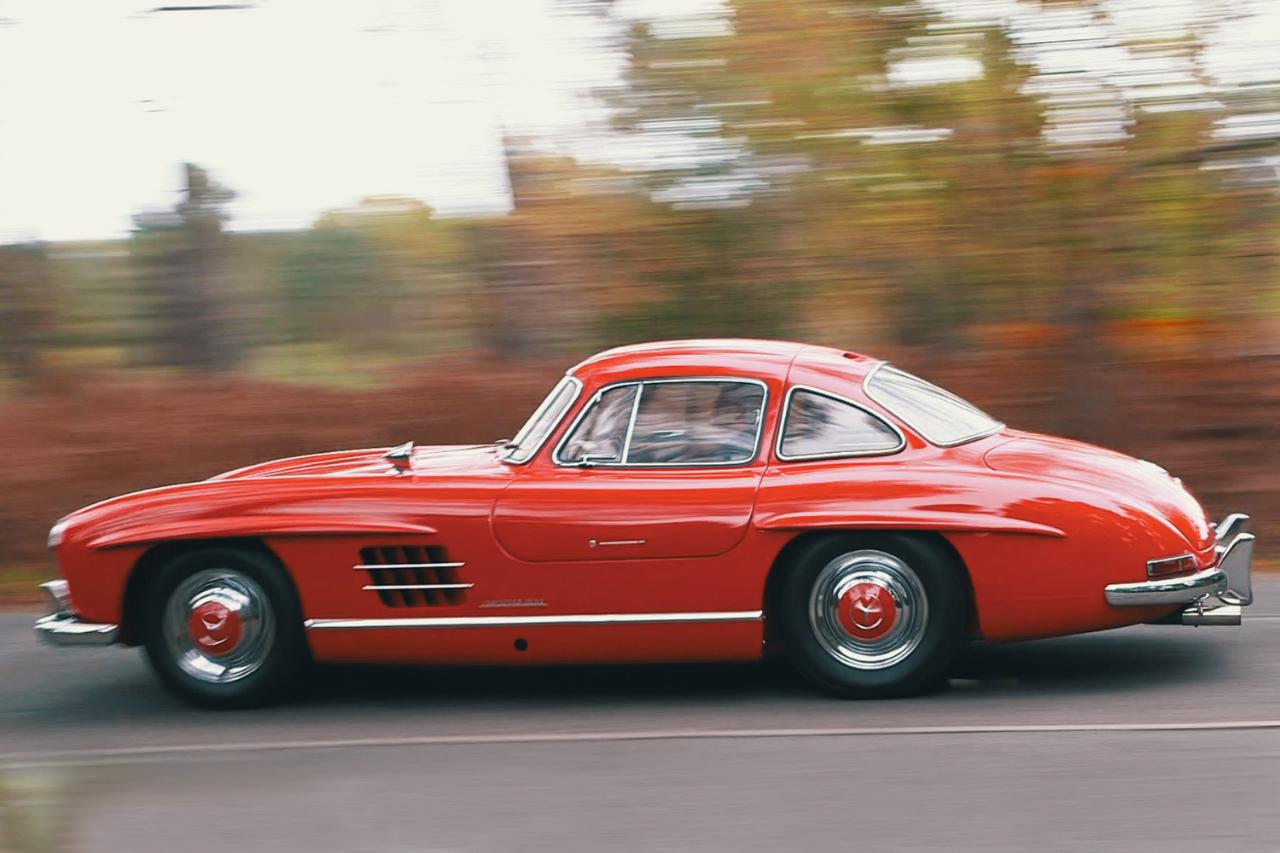
It was ordered new by Adam Opel AG of Mainz, Germany the previous month, which is unusual as most of the 1955 production went to the USA.
Shortly after being sold new, the famed head of design at General Motors, Harley Earl, arranged for the purchase through his close contacts at Opel and had it shipped to the US. The car then had another two owners in the US, the second starting a four-year body-off restoration that finished in 1994. Then it was sold to a museum in Japan, where it remained until last year.
It’s a perfect example of one of the most desirable cars in the world. I reckon Historics will have little difficulty in realising the upper estimate – or even more.
